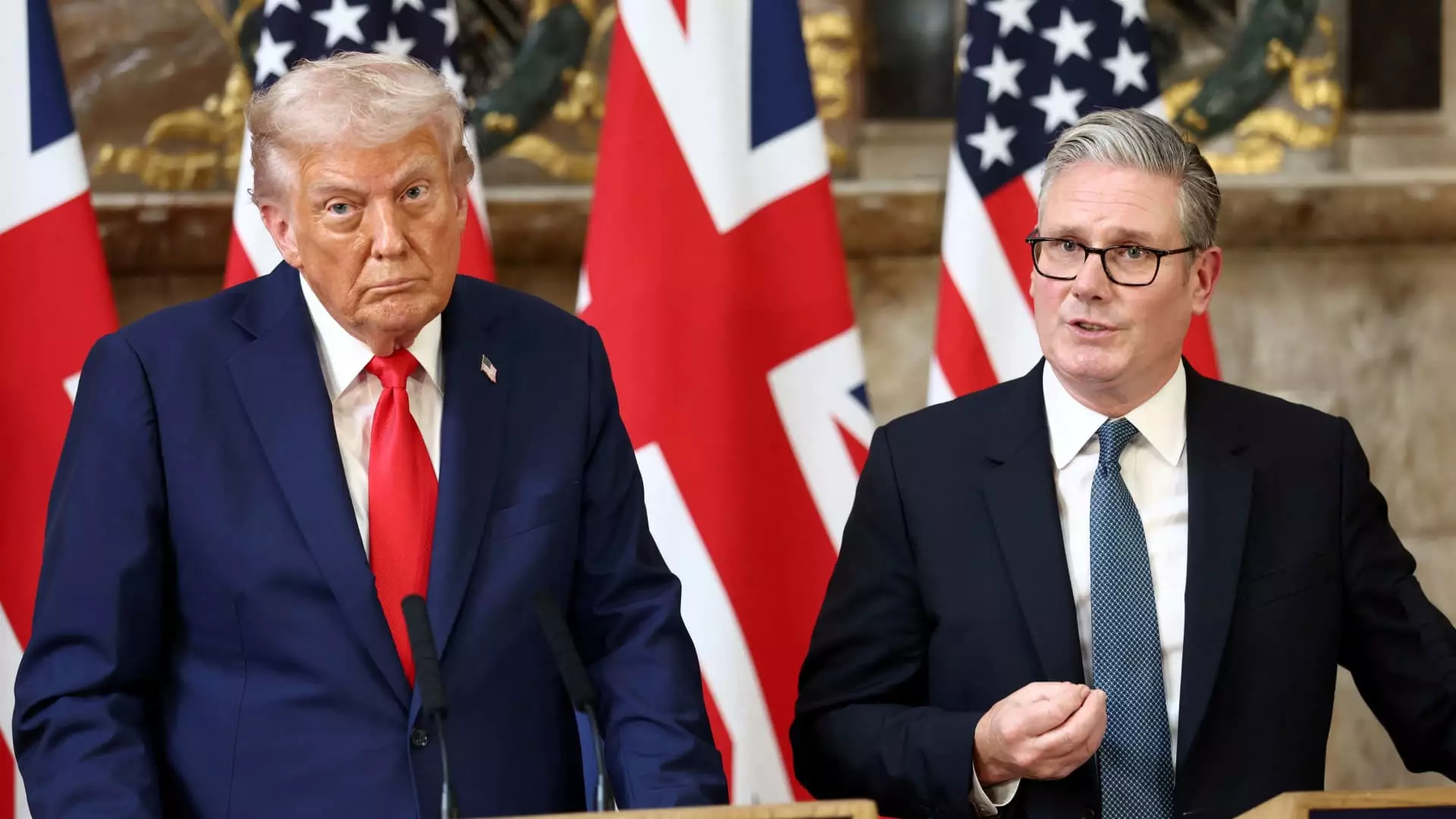The recent announcement of Blackstone’s staggering £90 billion ($121.5 billion) commitment to the U.K. has sent shockwaves through financial circles, yet beneath the surface, it invites skepticism rather than celebration. While headlines laud this investment as a bold vote of confidence, it is crucial to recognize that such promises are often more illusion than reality. Promises made in the realm of global finance are frequently aspirational, designed to excite markets temporarily rather than catalyze substantive change. In doing so, Blackstone’s pledge feeds into a narrative of resurgence for Britain—yet, closer scrutiny reveals a deeper truth: the country’s underlying economic vulnerabilities remain unaddressed.
The specter of optimism is intertwined with the political context; in a nation battered by Brexit’s fallout, slowing growth, and political instability, such commitments seem more like a lifeline thrown to a sinking ship than an indicator of robust domestic opportunity. There’s an undeniable allure in the magnitude of the pledge, but it is essential not to conflate promises with tangible outcomes. History shows that large commitments, especially those spread out over a decade, frequently result in delayed impact or, worse, become mere headlines that mask that little actual capital has been deployed. Britain’s economic condition continues to be fragile, and no amount of investment pledges can paper over the cracks in its financial architecture.
The Reality of Stark Economic Challenges
Despite the excitement surrounding Blackstone’s announcement, the economic reality paints a gloomy picture. Official figures highlight a significant plunge in foreign direct investment (FDI), dropping from £22.9 billion to a mere £1.3 billion in 2023. This decline isn’t just a statistical anomaly; it’s symptomatic of a broader crisis of confidence that persists despite Blackstone’s grand intentions. Investors remain wary of the UK’s post-Brexit environment, political disarray, and economic stagnation. The weakening of London’s IPO market to a 30-year low underscores how the capital is struggling to attract the capital inflows vital for sustainable growth.
This disconnect between the rhetoric of monumental investment and the stark data underscores Britain’s ongoing struggle to reestablish itself as an attractive investment destination. Promises of capital injections, no matter how sizable, are rendered hollow if the broader environment doesn’t encourage actual deployment. A proposed £100 billion spread over ten years offers no immediate relief nor a proven blueprint for reversing the economic damage wrought by years of political missteps and market uncertainty.
The Strategic vs. Superficial Impact
It is easy to get caught up in the allure of Blackstone’s grand commitment, but such a large-scale promise must be examined with a critical eye. The financial industry’s promise has shown time and again that numbers in headlines rarely match real-world outcomes. It is foreseeable that a significant chunk of Blackstone’s pledge might remain unallocated or delayed, constrained by the UK’s underlying economic conditions. The devil is in the details, and those details often include conditions, regulatory hurdles, and market sentiment—none of which are as promising as the promise itself.
Moreover, the optimism expressed by analysts like Dan Coatsworth should be tempered by the recognition that large investments do not automatically translate into economic revitalization. They can, at best, serve as a catalyst—if the environment is conducive. Currently, however, the British economy’s structural weaknesses and political turbulence make it unlikely that a flood of new capital will dramatically alter its trajectory anytime soon. It is a gamble, and not necessarily a wise one, to bank on this influx of capital to restore Britain’s battered economic reputation.
The Political Rhetoric vs. Economic Reality
The British government’s celebration of these announcements has a distinctly political flavor. Leaders are eager to project strength and stability, using these investment pledges as evidence of a turnaround. Yet, this narrative masks the deeper political chaos and economic disarray that continue to plague the nation. Promises of future investment are a classic political tool to mask short-term realities, offering a shiny headline to distract from ongoing issues like public debt, market sluggishness, and the lingering scars of Brexit.
For a nation that has long relied on foreign investment as a backbone of growth, such optimistic declarations risk becoming hollow if they are not backed by concrete policy reforms that foster a pro-business environment. Until the UK addresses its structural issues—legal barriers, economic policy uncertainty, and political fragmentation—these investment pledges remain more symbolic than transformative.
Blackstone’s colossal pledge to Britain, while seemingly promising on paper, is an illustration of the gap between aspiration and reality. For a nation mired in economic uncertainty and political turbulence, such promises are more a reflection of industry wishful thinking than a clear path to recovery. Unless Britain fundamentally reforms its economic landscape and rebuilds investor confidence, these multimillion-pound pledges will remain just that—promises. The true test will be whether real capital begins to flow in, and whether it translates into tangible growth, employment, and renewed stability. Until then, Britain’s grand investment dreams are little more than illusions—beautiful, compelling illusions, but illusions nonetheless.

